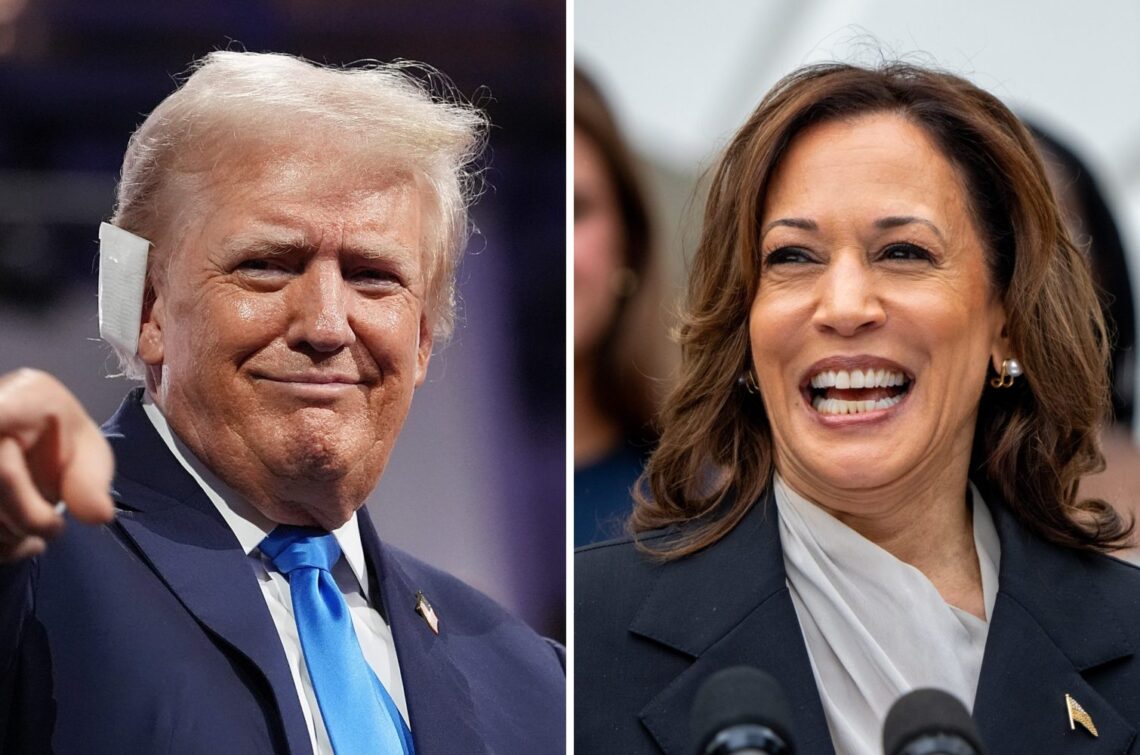Trump opts out of ABC debate, proposes Fox News alternative
A shift in the debate landscape
In a surprising turn of events, former President Donald Trump announced he would not participate in the planned presidential debate on September 10, which was to be hosted by ABC. Instead, Trump has pitched the idea of a new debate to be hosted by Fox News Channel. This move has stirred the political waters, especially since the ABC debate had been agreed upon by both the Trump campaign and the campaign for President Joe Biden.
The changing political scene
The political landscape has shifted significantly since the initial agreement. President Joe Biden exited the 2024 presidential race in July, leaving Vice President Kamala Harris as the Democratic nominee. Harris had committed to keeping the ABC debate in place, which was to be moderated by David Muir and Linsey Davis.
Trump’s announcement and legal entanglements
In a post on Truth Social late Friday, Trump declared the September 10 debate “terminated,” citing that the agreement was made when Biden was still the nominee. Trump also highlighted his ongoing legal conflicts with ABC, including a defamation suit against the network for comments made by anchor George Stephanopoulos. Additionally, Trump recently had a contentious exchange with ABC News correspondent Rachel Scott at an event organized by the National Association of Black Journalists.
Reactions from ABC and Fox News
As of Saturday, neither ABC News nor Fox News had offered immediate comments on the situation. However, the Harris campaign was quick to respond, accusing Trump of “running scared” and attempting to back out of the agreed-upon debate. Harris remains committed to appearing on ABC News, emphasizing the importance of speaking to a national primetime audience.
Fox News steps in
Fox News has seized the opportunity to propose its own debate. Jay Wallace, president and executive editor of Fox News Media, sent a letter to both the Biden and Harris campaigns, suggesting a debate on Fox News Channel for September 17, one week after the originally scheduled ABC event. The proposed debate would be held in Pennsylvania and moderated by Bret Baier and Martha MacCallum.
“We are open to discussion on the exact date, format, and location — with or without an audience,” Wallace stated. The letter also included statistics on Fox News’ reach among independent voters in swing states. Wallace and Baier have even expressed openness to muting each candidate’s microphone when it is not their turn to speak, a technique that has been used by CNN to maintain focus and reduce on-camera bickering.
The evolution of presidential debates
From 1988 to 2020, the non-partisan Commission on Presidential Debates organized the debate process, selecting moderators independently. However, the modern political climate has become so charged that both Republicans and Democrats have sought to bypass the organization their own parties established in 1987. This shift follows several elections where debates were organized by the League of Women Voters.
The impact of televised debates
Televised debates are a critical component of the electoral process. For instance, a CNN debate in June significantly impacted Biden’s campaign. The president appeared fatigued and enervated, even though the debate took place without a live audience and with microphones muted when a candidate’s time had elapsed. The telecast, which was simulcast across 22 networks, attracted approximately 51.27 million viewers, according to Nielsen.
Personal reflections for enthusiasts
For those who are passionate about cinema, TV series, and music, the drama unfolding in the political arena can be as captivating as any blockbuster movie or hit TV show. The stakes are high, the characters are larger than life, and the plot twists are unpredictable. Just as we analyze the nuances of a film or the layers of a TV series, it’s fascinating to delve into the strategies and maneuvers of political campaigns.
In the world of music, debates can be likened to a live performance where every note, every pause, and every interaction matters. The audience’s reaction can make or break the moment, much like how voters’ perceptions can shift based on a candidate’s performance.
In-depth analysis and distinctive comments
The decision to switch from ABC to Fox News for the debate is not just a logistical change; it reflects deeper strategic considerations. Fox News’ reach among independent voters in swing states could be a significant factor in this decision. Additionally, the proposal to mute microphones to maintain decorum indicates a desire to present a more controlled and focused debate environment.
For cinema and TV series enthusiasts, this scenario is reminiscent of a high-stakes negotiation scene where every move is calculated, and the outcome is uncertain. The political arena, much like the entertainment industry, thrives on drama, conflict, and resolution.
Conclusion
As the debate landscape continues to evolve, it will be intriguing to see how these developments unfold. Will Trump and Harris face off on Fox News? How will the format and moderation impact the candidates’ performances? These questions add another layer of excitement to an already dynamic political season.
For more information on the latest political developments, stay tuned to your favorite news sources and keep an eye on upcoming debates. The stage is set, and the spotlight is on.
For those interested in exploring more about the candidates and their campaigns, you can watch the trailers and get more information on the following links:

 Italian
Italian







